Research4Life in Papua New Guinea: “This will make my life much easier!”
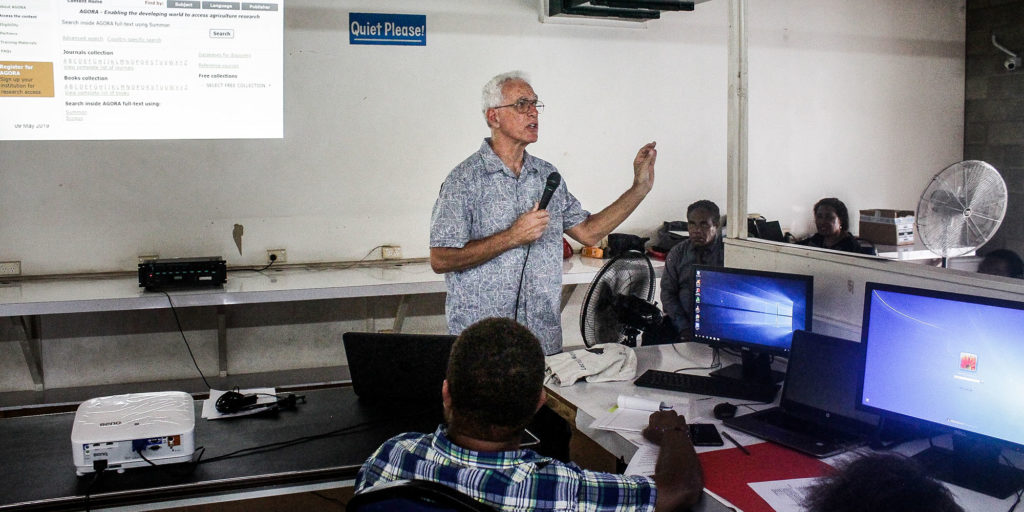
Research4Life provides academics and professionals in low- and middle-income countries with access to the world’s leading research. To ensure that our users get the most benefit out of the program, we regularly organize trainings, online and offline. Recently, Lenny Rhine from Librarians Without Borders visited Port Moresby, the capital of Papua New Guinea, to teach local researchers how to get the most out of the Research4Life platform.
Papua New Guinea: basic facts
- 8 million inhabitants
- Capital: Port Moresby
- Official languages: Tok Pisin, English, Hiri Motu, and Papua New Guinean Sign Language
- Holds the record for having the most languages within one country, with over 820 indigenous languages
- About 80% of Papua New Guinea’s inhabitants live in rural areas
- Due to the terrain, internal transport is a major problem
- Only 50% of children attend high school, according to UNESCO data
- Major health problems include communicable diseases (malaria, tuberculosis diarrhoeal diseases, and acute respiratory disease), and infant, child and maternal mortality rates are high
Papua New Guinea is labelled a ‘Group A country’, which means that eligible institutions in the country can get free access to the tens of thousands of online peer-reviewed resources that are available through Research4Life. This is necessary, as the country’s inhabitants face some pressing health challenges, such as an ongoing tuberculosis and crisis, a lack of vaccination against common diseases, and maternal mortality, according to a recent WHO report. Evidence-based knowledge can inform policymakers’ decisions and help scientists advance at a faster speed.
The National Department of Health in Papua New Guinea has recognised the need for more support towards research planning under the National Health Plan 2011-2020. Its Health Research Unit focuses on operational research as an essential component of strengthening health systems research. So far, the operational research carried out in the country is inadequate, as health workers face many challenges in undertaking research to support the development of new policies, plans and strategies in the workplace.
The training took place at the University of Papua New Guinea’s School of Medicine and Health Sciences and had a special focus on Hinari, Research4Life’s health research programme. Over 40 participants attended, representing most of the key health-related organizations from the region.
“When I return back home after my studies abroad, I want to start a center for victims of gender-based violence, as well as a research center on the subject,” said Olivia Sharon Ephraim, one of the attendees. “As a young researcher, Research4Life plays an important role in my everyday work. The training will help me when I start my master’s degree in Public Health at Melbourne University next year. I also want to use my new skills to teach others how to access and use Research4Life.”
Many attendees were also pleased to learn how they can benefit from free reference managers that are available online, such as Zotero or Mendeley. “This will make my life much easier! Before, I wrote down all my sources by hand,” said Beulah Sipana from the University of Papua New Guinea.
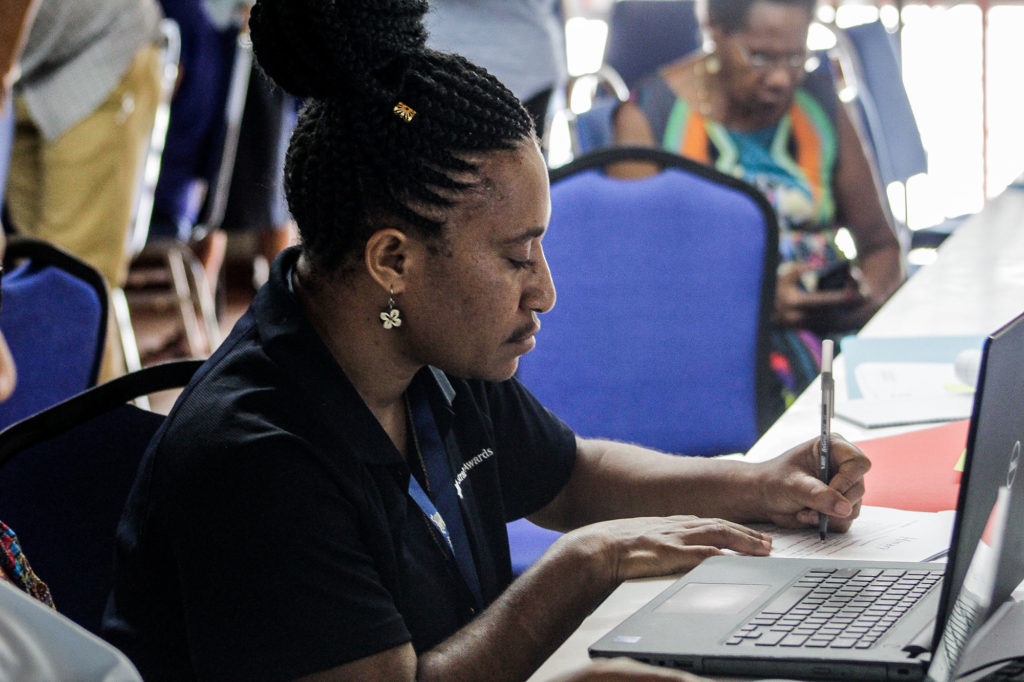
Hinari has many resources on pharmacology and pharmaceutical sciences. “Especially the British National Formulary and the British Pharmacopoeia are very useful to me,” commented Hinani Toborley of Papua New Guinea’s National Department of Health. “We need evidence-based resources like these to evaluate pharmaceutical products and to help us register new medications.”
“Ten years ago, I also conducted a workshop at the School of Medicine and Health Sciences,” commented Lenny. “Compared to then, the participants not only started this workshop with better skills, they also had a superior comprehension of the value and impact of the resources available through Research4Life. During the workshop, many of the participants started thinking of how their colleagues or students would benefit from having access.”
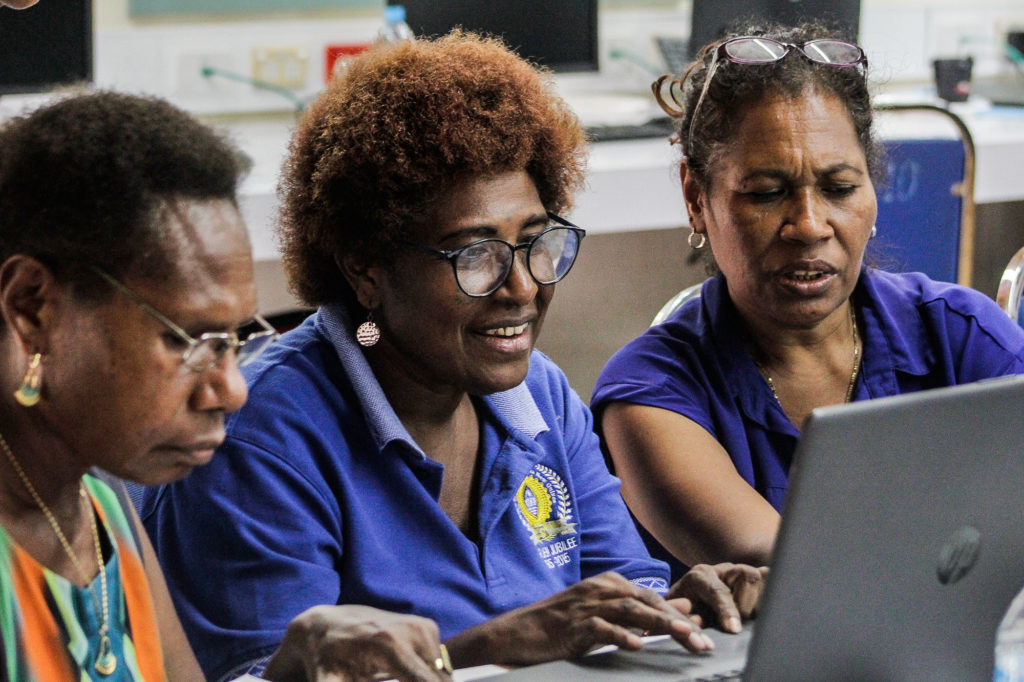
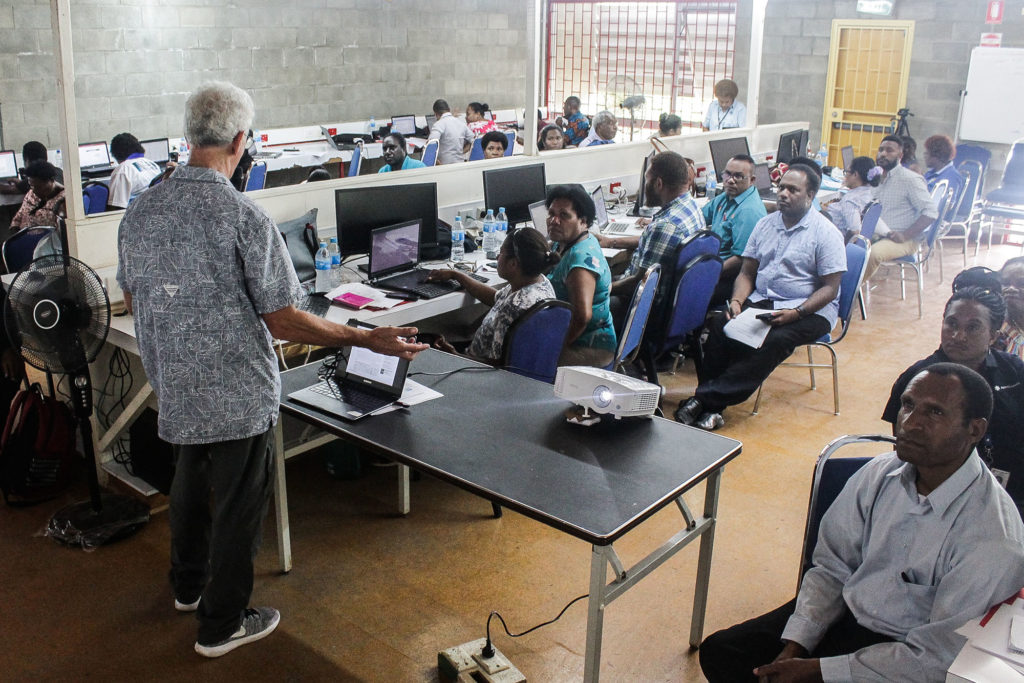
Lenny Rhine instructs the group 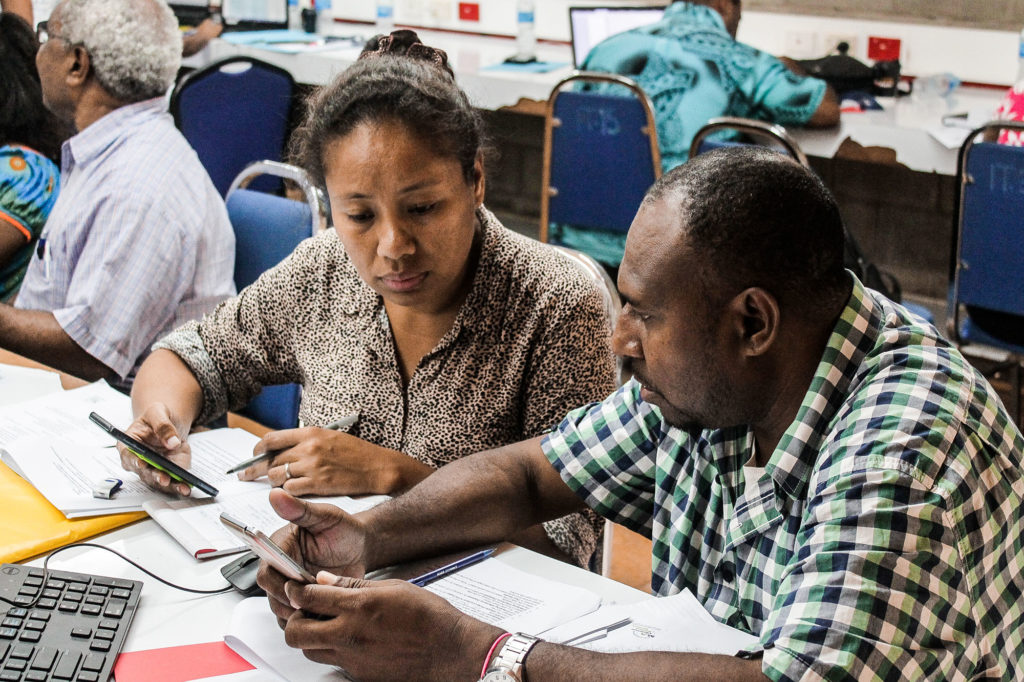
Also included were smartphone search techniques. 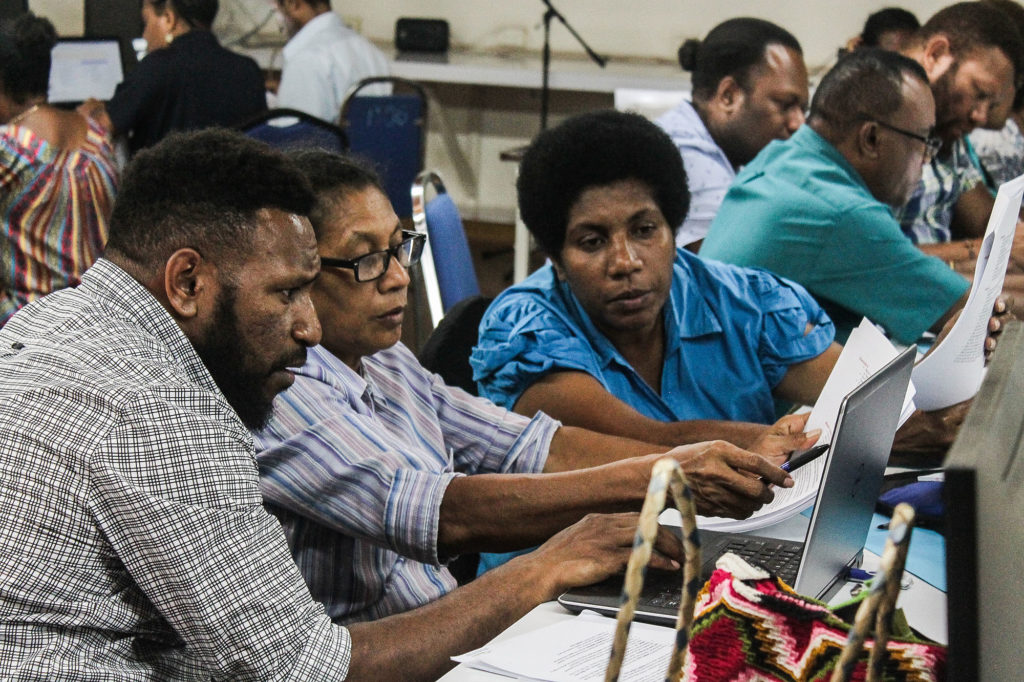
What was included in the training?
- Research4Life overview and searching skills
- How to access journals, books, and other resources
- Searching across Research4Life programmes with the Summon search tool and Google Scholar
- Additional Research4Life tools: databases for discovery and reference sources
- How to use PubMed
- Evidence-based practice and e-books from Research4Life and the internet
- Other health information sources on the internet
- How to use Research4Life’s training and promotional materials
- Keeping track of resources and citations with reference management software
- How to read, write and publish a scientific paper
- Intellectual property: copyright & plagiarism
- Web-bibliography: ‘resources’ for all aspects of publishing





